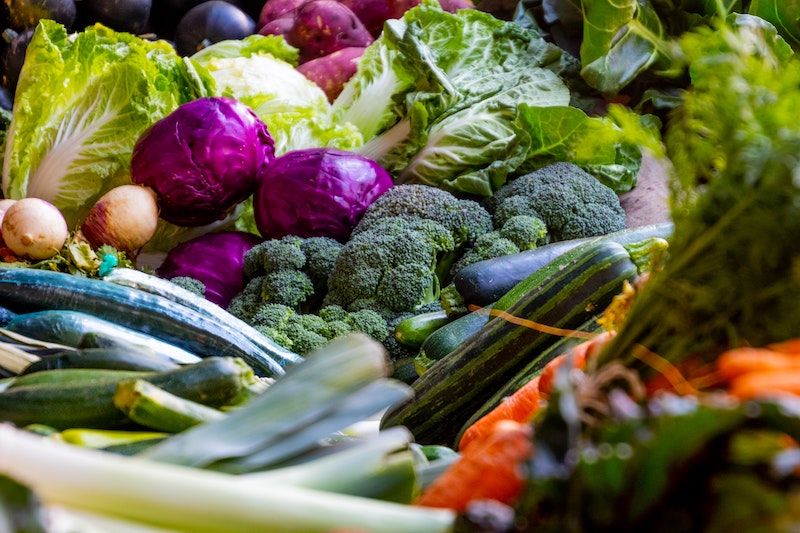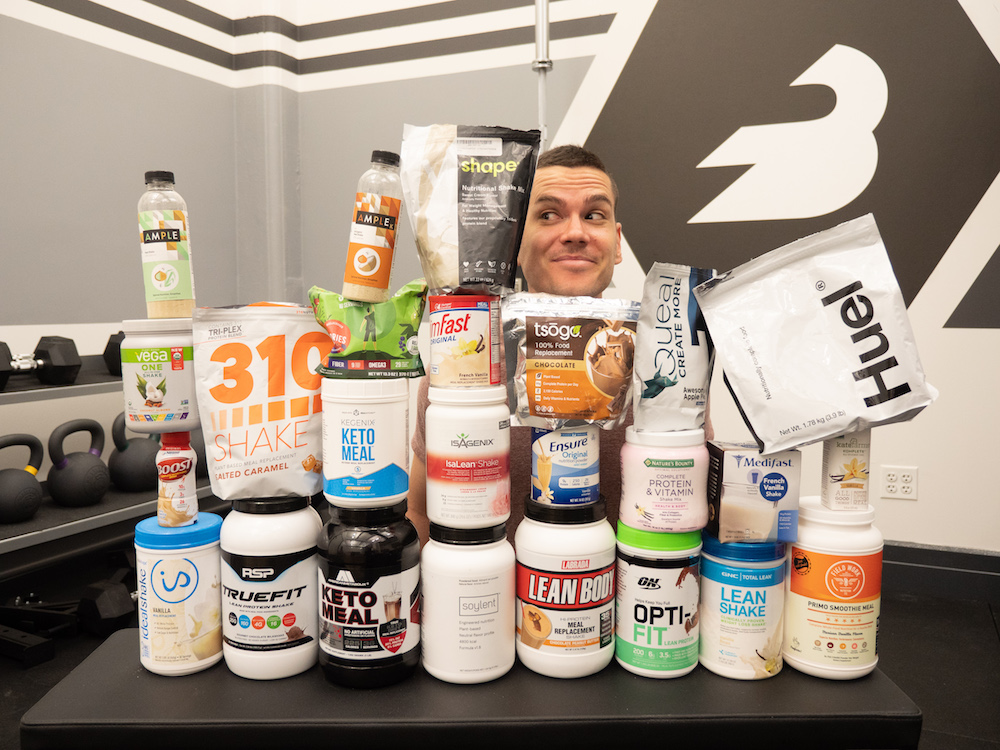The very idea of “meal substitute” is enough to send quakes of fear through a room of health nuts. After all, the mantra of a healthy lifestyle is always “real food,” followed closely by “whole food.” In in industry where even the idea of multivitamins give a lot of people the heebie jeebies (“Can’t you just eat real food?”) the thought of getting both calories and nutrients from a powder is often met with derision.
So are meal substitutes actually healthy? If so, should you just go ahead and live on powder indefinitely?
Don’t Live on Powder Indefinitely
For reasons we’ll outline below, meal replacements shouldn’t really be seen as replacements for meals. “Meal substitute” might be a better term: they aren’t a perfect 1-to-1 replacement for a balanced, healthy meal, but they may be the next best thing.
To further contextualize that, how often do you really eat a balanced, healthy meal? For most people the answer is next to never. If you’re someone who eats fast food and processed junk, a good meal substitute is almost certainly a more nutritious option.
Sure, you won’t find a powdered blend of whey and vitamins blossoming in nature. But it sure as heck is a better thing to put into your body than a powdered blend of corn and cheeto dust.
But Is It OK to Get Vitamins and Minerals from Meal Replacements?
People often look for absolute ‘yes’ or ‘no’ answers to questions about their health while the truth is somewhere in the middle. Think of it in more relative terms: it’s better to get vitamins and minerals artificially than to not get them at all.
It’s also important to frame this relative to meals you might otherwise be eating. A good meal replacement will have about two dozen vitamins and minerals present. Even if you’re eating a super balanced meal of, say, steak, broccoli, and quinoa, are you likely to be getting that wide a variety of nutrients? Probably not.
But there are also a lot of nutrients that aren’t typically found in meal replacements.
“It’s true you can get some nutrients that are lacking in your diet from meal replacements, but you can also do that with a multivitamin,” says New York-based dietitian Natalie Rizzo, RD. In my opinion, the best way to get a balance of vitamins, minerals, fiber and antioxidants is pretty simple: eat fruits and vegetables. Meal replacements tend to lack at least some of those elements.”
Taking that steak/broccoli/quinoa dish as an example, that meal will serve up indole-3-carbinol (which helps to balance estrogen), isothiocyanates (a powerful antioxidant and anti-inflammatory), and glucosinolates (which have been linked to lower risk of heart disease).
And that’s just in the broccoli.
(They’re also in most cruciferous vegetables.)
So don’t think of any meal replacements as something that delivers every single healthy thing you can eat.
We eat a lot of other things that contribute to our health besides just vitamins and minerals, which is one reason why whether you’re using meal replacements for convenience or nutrition, it’s still smart to eat “real” food as well.
Meal Replacements Can Help With Weight Loss
Weight loss or weight gain come down to calorie balance and one of the unsung strengths of meal replacements is that they should deliver nutrition in a precisely measured number of calories. Whether you’re cooking for yourself or eating out, it’s very unlikely you’re eating the same number of calories for lunch every day. Fluctuations in calorie intake can lead to undesired fluctuations in weight.
A lot of studies have found that meal replacements can be more effective for weight loss than just following a low calorie diet. In 2003, the International Journal of Obesity and Related Metabolic Disorders published a meta analysis of six randomized controlled trials that concluded meal replacements “can safely and effectively produce significant sustainable weight loss and improve weight-related risk factors of disease.”(1) Note that that’s in conjunction with a low calorie diet.
“I tend to fall under the “you can get all the nutrients you need from a well-balanced diet” umbrella,” says Rizzo. “Sure, you can use them for a few weeks to replace your meals and help with weight loss, but unless you choose to use them forever, those results may be reversed when you go back to your normal eating habits.”
So if you’re adding meal replacements to your diet, it pays to balance them with healthy meals and education about what makes a healthy meal as opposed to adding them into your regular rotation of McDonald’s and Burger King. No supplement should be seen as a cure-all, after all.
That said, as a relatively nutritious way to deliver nutrients and calories, meal replacements can certainly have their place in a dieter’s toolbox, particularly when you take into account the fact that losing weight leads to a ton of improvements in biomarkers like serum cholesterol. In other words, meal replacements aren’t just valuable because of the vitamins and minerals.
Some Meal Replacements Can Use Cheaper Vitamins
Or minerals. Let’s take magnesium as an example: in our article we note that there are a ton of different forms of this mineral and they’re not all created equal. The cheapest and most popular is magnesium oxide, which is also the most likely to be eliminated from the intestines before being absorbed. That doesn’t mean it’s worthless, but taking a meal replacement with added magnesium oxide doesn’t necessarily mean that it’s the same thing as eating a cup of spinach.
A Meal Replacement Can Be “Too Nutritious”
Let’s take the low-calorie meal replacement Kylea Health & Energy Total Living Drink as an example. One scoop contains 100 percent of the RDI of calcium, or 1,000 milligrams — awesome! — but the National Institutes of Health state that we can only absorb about 500 milligrams of calcium at a time. This is one reason why it might not always the best idea to rely on one meal to deliver all your vitamins and minerals.
Wrapping Up
As previously mentioned, it’s best to avoid absolutes in health and nutrition, but if we’re going to make broad statements: a good meal replacement is a better choice than a candy bar, a good way to add nutrition to your day, and an easy way to manage calories. Note that we’re emphasizing good meal replacements — there are plenty that aren’t that nutritious, which is why it’s important to pick one with a good 20 grams of protein and a broad spectrum of nutrients. Find the best for your goals in our roundup of the best meal replacements on the market.
Editor’s note: This article is an op-ed. The views expressed herein and in the video are the author’s and don’t necessarily reflect the views of BarBend. Claims, assertions, opinions, and quotes have been sourced exclusively by the author.
Other Great Meal Replacement Reviews
- Huel Meal Replacement Review – Rating: 8.5/10
- Ample New Bulk Version Meal Replacement Review
- Ample Meal Replacement Review – Rating: 8/10
- 310 Meal Replacement Shake Review – Rating: 8.1/10
- Boost Original Complete Nutritional Drink Meal Replacement Review – Rating: 8.2/10
Related Meal Replacement Content
References
1. Heymsfield SB, et al. Weight management using a meal replacement strategy: meta and pooling analysis from six studies. Int J Obes Relat Metab Disord. 2003 May;27(5):537-49.




